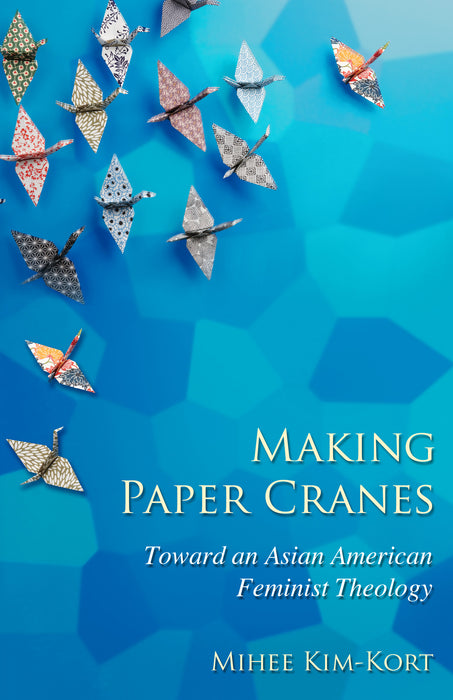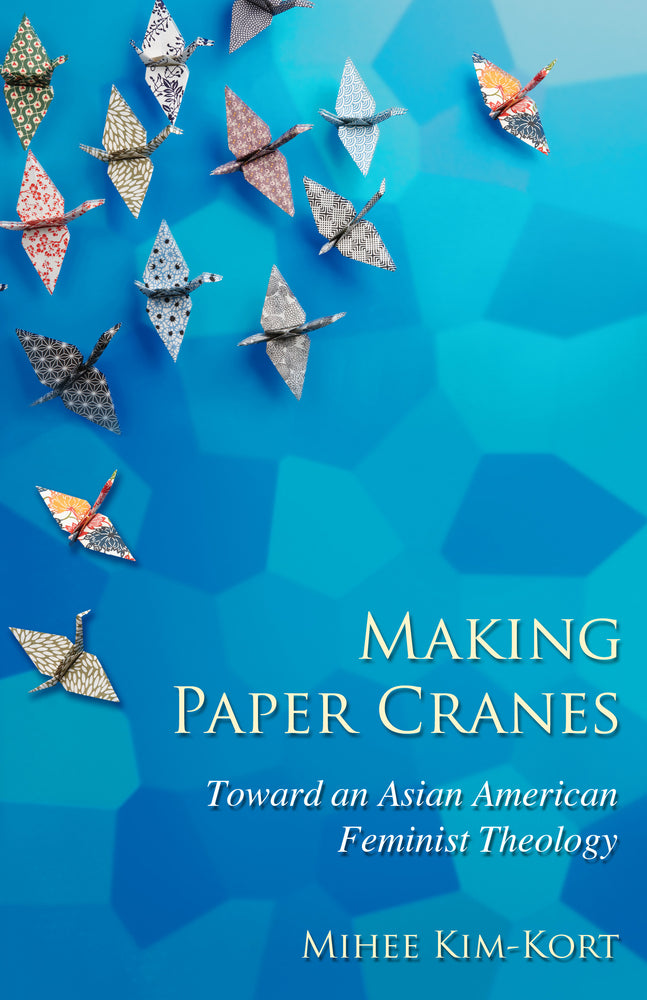Making Paper Cranes: Toward an Asian American Feminist Theology
by Mihee Kim-Kort
Drawing on memories of making paper cranes with her mother at the kitchen table, Mihee Kim-Kort begins with one of her favorite stories from childhood about the tradition of making a thousand cranes. Intrigued by the symbol of the crane, she explores the migrations and movements of the community of Asian American women. What results is a theological endeavor that engages the social histories, literary texts, and narratives of Asian American women as well as the constructive theologies of feminist and liberation theologians. But, it is ultimately one young woman's embrace of living into this community and identity, and articulating a particular theology that is hopefully accessible to all who have experienced powerlessness and marginalization.
Simply put, Making Paper Cranes is about Asian American mothers, daughters, sisters, and women who courageously discover the grace in the struggle, the survival, and the song.
Part of The Young Clergy Women Project series
Endorsements
"Mihee Kim-Kort uses metaphors, poetry, and plays to construct an Asian American feminist theology that builds on the work of other Asian American feminists. Distinctive in her contribution to this emerging field is her optimistic use of terms like compartmentalization, assimilation, fragmentation, and collision (usually seen negatively) to speak to the lived realities of Asian American women’s experiences of racism, sexism, and powerlessness. The metaphor of collision draws attention to the “ongoing encounters of stereotypes, expectations, standards, and conflicting realities that lead to fragmentation” (p. 81). Asian American women experience oppression at two distinct levels: first, they contend with hierarchical and patriarchal structures of Asian American culture; second, they also contend with assumptions, stereotypes, and imagined constructs imposed by the dominant cultures that reflect cultural imperialism and colonialism. To respond to these oppressions she draws on the value of solidarity grounded in Asian culture and Christian faith. Kim-Kort anchors her theology in the power of interconnection,relationship, and community among Asian American women. To 'name' is to break the silence, to have voice, to define one’s identity as a human being created in the image of God. Kim-Kort asserts that Asian American feminists must fight for their right to have a voice, to tell and write their stories. She insists that Asian American women must give voice to the sources of their fragmentation and engage in intentional reconstruction in order to find healing and transformation. By weaving self-reflective stories with wit, she illustrates how to reclaim one’s voice by drawing wisdom from her own lived experiences and those of other Asian American women. She proposes a space she calls a “threshold,” an unbounded space of possibilities and hopes for Asian American women. Making Paper Cranes offers a summary of the history of Asian immigrants in the United States and calls attention to the interrelationship of racism, sexism, and classism in American culture. It engages feminist theologies, liberation theologies, and Asian American feminist theologies. Seminary students will find this book a model of critical and constructive dialogue between theological frameworks, autobiography, and biography. Congregations committed to diversity will find that this book encourages an appreciation for diversity that enriches human interactions and understanding. Anyone struggling to resist stereotypes and have a voice will find wisdom for healing and wholeness in this book." --Narola AO McFayden, Union Presbyterian Seminary, Interpretation, A Journal of Bible and Theology, October 2013


